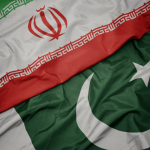The Tel Aviv University-affiliated Institute for National Security Studies (INSS), one of the research organizations closest to the decision-maker, has finished its annual assessment, “Strategic Assessment for Israel 2023”, on which a team of experts in regional, global, and military affairs have worked.
At a special event held at the President’s residence, INSS head Professor Manuel Trajtenberg and Maj. Gen. (res.) Tamir Hayman presented President Isaac Herzog with a summary of the assessment’s key findings. This assessment provides a thorough analysis of Israel’s strategic environment from the perspective of its national security, identifies potential threats and opportunities, and puts forward recommendations for Israeli decision-makers.
During his meeting with the INSS research team, President Isaac Herzog stated that the regional understanding is emerging that the future of the Middle East is in large part a future of partnerships and that the Iranian threat in the region is vital – not just for Israeli citizens, but for all Middle Eastern residents.
This isn’t a novel idea. Israel has been adamant over the past several years that the Iranian threat is the most significant in the regional security equation, necessitating some form of partnership among its parties to counter it. Obviously, this concept reduces the actual threats to the Iranian one. In fact, there is another list of threats on par with the Iranian threat, put forward by major parties in the region that Israel speaks about. However, Tel Aviv has never shown interest in engaging with those parties, nor has it invested in the aforementioned partnerships in an effort to search for a mechanism to establish a real stability equation. However, what can be considered true to reality is the so-called “internal arena”, to which Herzog referred and the strategic assessment alluded, and which is inextricably linked to the security of the State of Israel.
The assessment indicated that Israel is undergoing a period of crisis and internal conflict, the details of which were outlined by President Herzog, who stated that Israeli society has “the capacity to deal with the situation and contain the deepest differences of opinion without abandoning its own beliefs.” As a result, Herzog believes that “bridging the gaps, including the political divides, is perhaps the most crucial step in maintaining the security, stability, and prosperity of the State of Israel.” This is an indication of the severity of the divisions that plagued Israel’s interior following the ascent of the hardline right to the position of power, which made it necessary to look for the missing bridges Herzog referred to.
While the INSS assessment indicated that Israel’s national security is stable and positive relative to its regional adversaries, it noted that 2023 poses a number of threats to this equilibrium, most notably “the threat to social resilience and the system of checks and balances in Israeli democracy.” According to Tamir Hayman, Israel’s growing social polarization will make it harder for the country to handle external threats. The assessment identifies any harm to Israel’s special relationship with the United States and the West as the most significant security and geostrategic challenge facing Israel at the present time, as the steps taken by the Israeli government are interpreted by the West as “harming democracy”, especially the plan to weaken the judiciary and the changing pattern of relations with the Palestinians.
Hayman was clear about the strategic assessment’s finding that internal changes in the United States have seriously threatened Israel’s geostrategic sphere. According to the INSS assessment, this decline in support for Israel can be traced to growing political polarization and extremism on both sides of the aisle in the United States, which led to a progressive decline in the political component supporting Israel. The assessment forewarned that the current actions of the Israeli government would be seen as upsetting the West and the United States, which will, in turn, seriously harm Israeli interests. According to the assessment, this would apply to government officials as well as the general US populace. According to the assessment, the progressive current in the United States has grown in strength and rejects the “legitimacy” of Zionism and Israel, viewing them as symbols of white supremacy and colonialism.
The assessment included a section devoted to what it called the “collapse of the Palestinian Authority”. According to the report, this issue poses the most immediate threat to Israel and has the potential to seriously escalate security in the West Bank. However, the assessment concurred with the Israeli President that this threat pales in comparison to the Iranian one.
The assessment’s most significant finding in this regard was that Israel has an interest in the Palestinian Authority’s continued existence despite its flaws and issues. Notably, the assessment’s recommendation in this regard came to suggest that in the absence of a clear solution with the approaching end of Mahmoud Abbas’ presidency of the Palestinian Authority, and against the backdrop of the growing unrest among a large segment of frustrated youth, there is a growing risk of escalation of violence, which will lead to an exacerbation of the dangerous strategic threat posed by a “one-state” reality, which will jeopardize Israel’s Jewish identity.
This Op-ed was originally published in Al-Ahram newspaper on 28 January.












